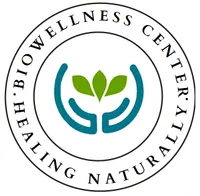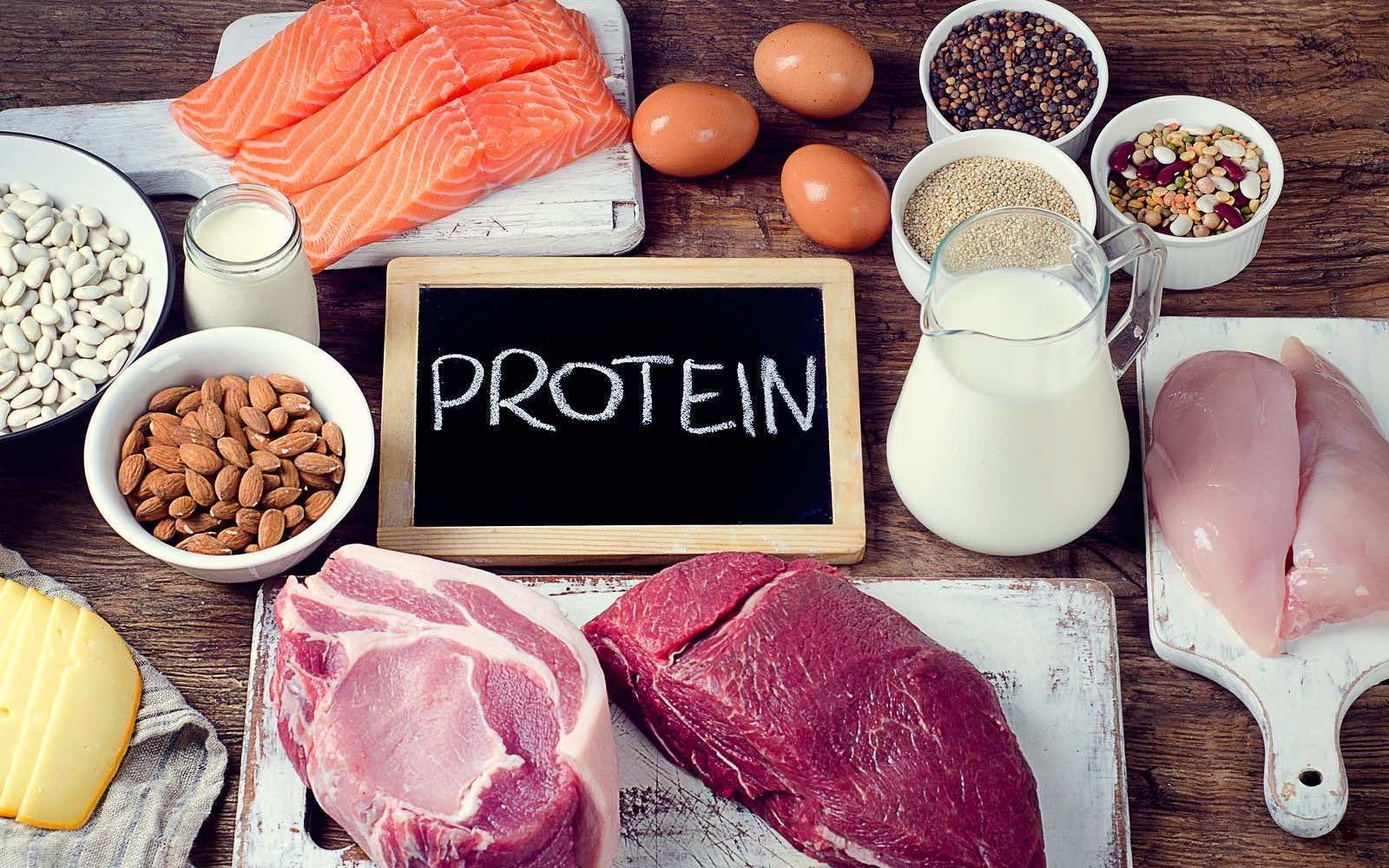Empowering Your health with knowledge
Welcome to your resource hub, where you'll find a wealth of information designed to support your health journey & curiosity. At Bio Wellness Center, we believe in empowering our patients with the knowledge and tools they need to achieve and maintain optimal health.
Health Education with more than just fun facts
Understanding Your Health
Dive into our collection of fun facts on a variety of health topics. From understanding the basics of nutrition to exploring natural remedies for common ailments,
our resources are here to enlighten and educate.
Condition-Specific Resources
Find comprehensive information on conditions treated at Bio Wellness Center, including heart problems, diabetes, high blood pressure, and more. Learn about the causes, symptoms, and natural treatment. More options are available than the ones we may provide on this page, so give us a call if you have any questions.
Health Tips and Lifestyle Advice
Fun Facts
Explore our fun facts for the latest tips on healthy living, natural healing, and common ailments. Our posts are designed to inspire and guide you towards a healthier lifestyle, covering topics such as stress management, exercise, and holistic nutrition as well as other useful information.
Recipes for Health
Discover delicious, health-promoting recipes that cater to a variety of dietary needs. From anti-inflammatory meals to immune-boosting smoothies to carb sensitivities; our recipes make it easy to incorporate nutritious foods into your daily routine.
Support and Community
Patient Testimonials
Hear from others who have embarked on their wellness journey with Bio Wellness Center. Our patient testimonials offer insight into the experiences and outcomes of those who have utilized our services.
Fun fact events
Stay updated on upcoming fun facts hosted by Bio Wellness Center. The knowledge you will be given is a fantastic way to learn more about common ailments and natural health as well as some plain old interesting facts from the past. If you are interested in more of what we do here at Bio Wellness Center, meet our team, and connect with like-minded individuals in the community.
Welcome to Our Fun Facts
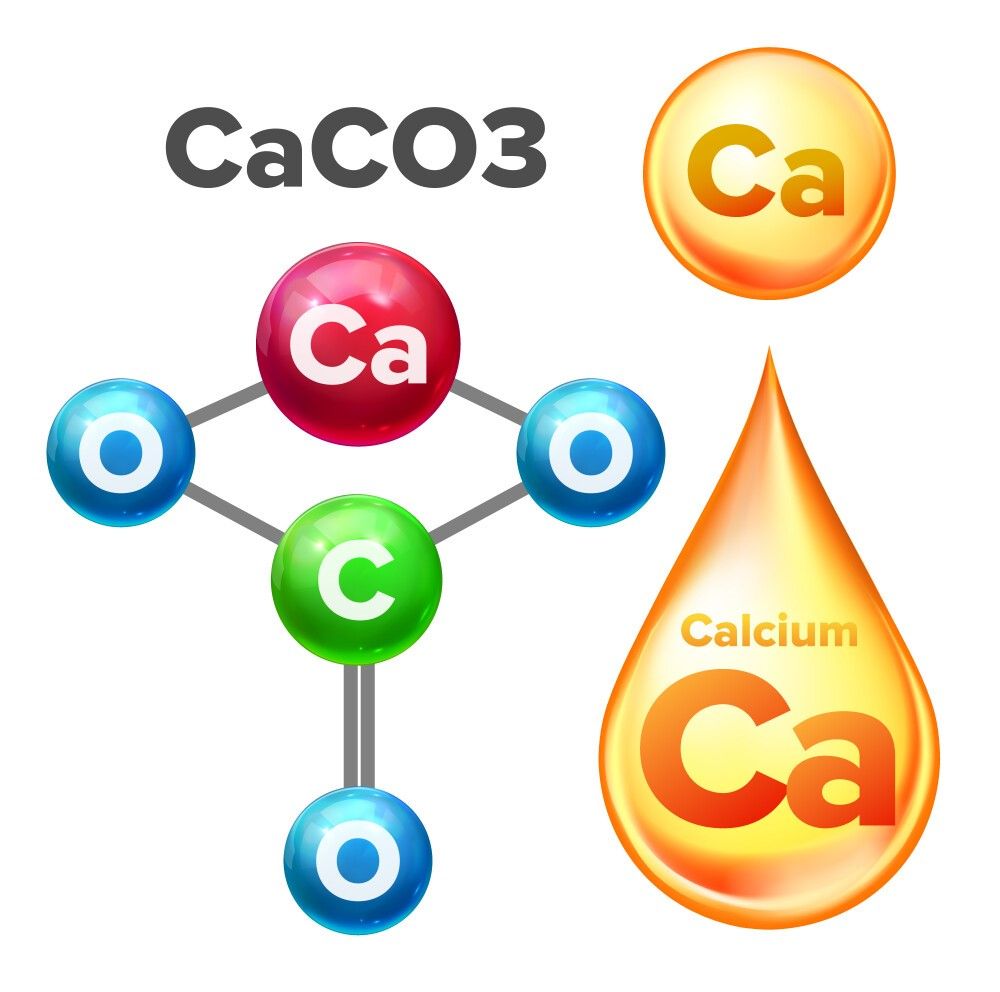
The lack of calcium is the reason for 147 different diseases
Why does your body need calcium? Well, there are a few reasons
- To circulate blood, move muscles, and release hormones
- Calcium helps send messages to the brain
- It is a major part of your teeth and bones, making your bones strong and dense
- Calcium helps PMS cramps and regular muscle cramps
- Calcium even helps with back pains. Most people or doctors will say its a disc problem resulting in someone getting surgery, making the pain worse in many cases; when in fact your body is just lacking in calcium
What happens if your body is low on Calcium?
- Hypocalcemia, muscle aches, fatigue, kidney disease.
- Muscle cramps like, leg cramps, toes, arms, muscle twitches, back issues, etc.
- If you have receding gums, gingivitis, periodontitis, pyre, loose teeth, bridges, and plates; you likely have Osteoporosis of the facial bones and jawbones. What does this mean? It is a lack of calcium (and nutrition too).
So, eat calcium and nutrition rich foods!

Did you know there are certain foods you can eat that help prevent sunburns?
Here is the list of foods
- Avocados
- Spinach
- Squash
- Leafy greens
- Brussel sprouts
- Berries
- Pomegranates
- Sweet potato's
- Chlorella
- Kidney beans
- Edamame
- Navy beans
- Walnuts
- Pecans
- Mussels
- Oysters
- Clams
- Anchovy
- Salmon
- Sardines
- Tuna
- Mackerel
- Caviar
- Kipper
- Herring
- Hemp seed oil
- Salmon oil
- Flaxseed oil
- Cod Liver oil
- Canola oil
- Chai seeds

You can have heart poundings/palpitations from low electrolytes
What are electrolytes? Salt!
It has been researched and tested that the more sodium (electrolytes) people ingest, the less likely they are to die from heart disease or heart attacks.
The average human body is made up of about 60% water. This means almost every cell and fluid in your body contains electrolytes (and salt). Electrolytes are used to regulate chemical reaction happening in your body, like balancing hormones for example. Electrolytes maintain the balance between the fluids inside and outside your cells.
If you are worried about your blood pressure, then there's no reason to worry, because it was also proven that salt has no effects on blood pressure, good or bad.
Essentially, your body needs salt so survive. It helps with many functions like, nerve impulses, muscle fibers, fluid balance, cell function, etc.
So, in salt, you will find the electrolytes and sodium for your body to properly function
Reference:
Dr. Ken D. Berry, MD
Scroll down to find fun facts about salt itself!
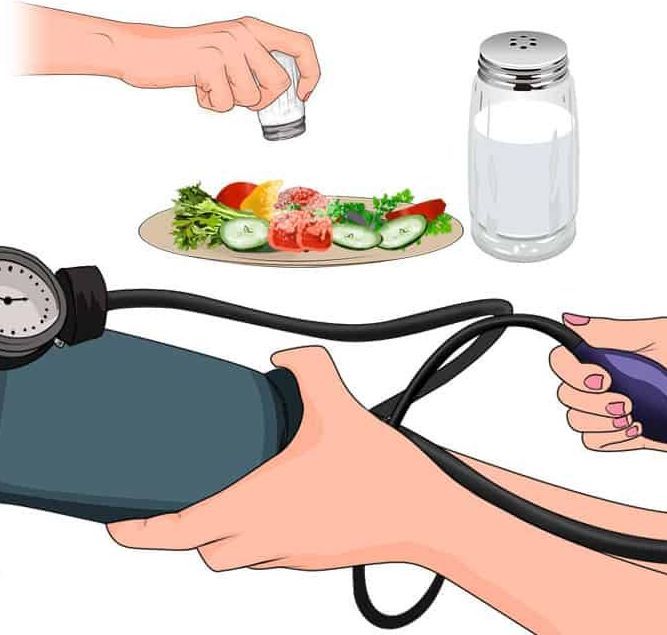
Salt does not affect your blood pressure. Salt also helps protect you from heart disease and heart attacks
Don't believe me? Here's an example. What is it that farmers put out for their livestock? Salt blocks, in other words, saltlicks. And with that, you never see cattle or other livestock with blood pressure issues do you?
Dr. Alexander Gordon Logan, an epidemiologist and cardiologist was on the teaching staff at the University of Toronto in Canada. He took 56 existing studies on hypertension and high blood pressure and the restriction of salt. He combined the data, threw away the conclusions, and reevaluated a larger group.
What he found was that if you have normal blood pressure and restrict salt, it will not prevent you from getting heart disease or high blood pressure. If you have hypertension or high blood pressure, the restriction of salt will not give any measurable benefit.
In simpler words, salt has nothing to do with your blood pressure. Salt and cholesterol is an essential nutrient the human body needs.
So what causes high blood pressure?
The answer is the lack of minerals your body needs. Or you could have thyroid issues, diabetes, deficiencies in fatty acids; really a number of things could be the cause.
Want to know more? Scroll up to information about electrolytes and salt. So with that being said, make sure you salt your food and stay healthy!

Over 17% of American adults have chronic sinusitis
Your sinuses are very important to take care of. Especially if it is chronic.
Chronic sinusitis causes nasal congestion, thick mucus, and breathing issues. Studies link it to fungal presence, which triggers inflammation and mucus thickening. (And yes, you read that right, Fungus in your mucus.)
Certain environments can foster bacteria and fungi growth causing sinus infections. You may notice during infection that your mucus might be yellow or green. This is due to trapped bacteria and the body's reaction to viral infection.
Addressing the root cause of this sinus issue involves thinning the mucus and applying antifungal and antibacterial treatments.
Here we have 2 strong strategies you can try for your sinus infections.
Solution1:
- Recommended treatment is Intenzyme Forte, taken as 10 tablets 3 times daily between meals
- This enzyme supplement can thin out stubborn mucus buildup when it has become to vicious for traditional treatments to work, providing relief
Solution 2:
- Support your immune system with oral probiotics
- For adults: Adult ENT-Pro probiotic
- For children: Children's ENT-Pro probiotics
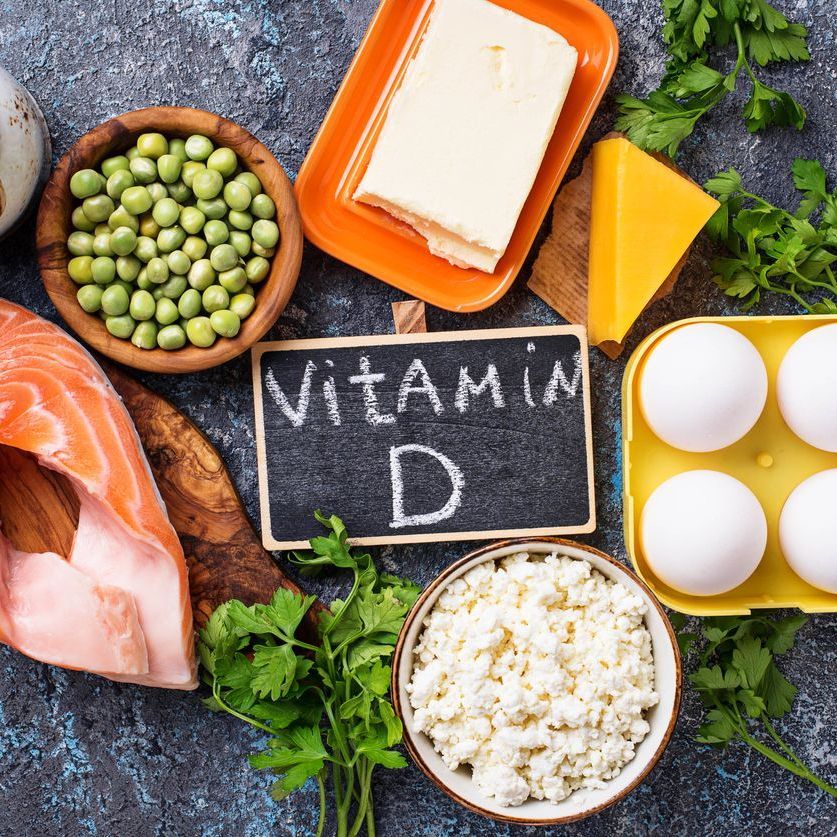
Vitamin D is important to hundreds of biochemical functions in the human body
Vitamin D is so important to our bodies that over thousands of years, our bodies learned to make it from the sunlight shining on our skin.
The shift to indoor lifestyles and reduction of dietary fat intake has led to a gradual decline in our average vitamin D levels.
Vitamin D is also a pro-hormone and beneficial for many things in the human body. To many to count.
Vitamin D not only helps us absorb calcium, keeping our bones dense and strong; it also supports the immune system, mood, heart health, and many other functions.
In other researches, it was found that higher intake of vitamin D reduced type 1 diabetes, various cancers including skin cancer, multiple sclerosis, and other health conditions.
Vitamin D is a vital ingredient to overall health.
Foods like, fish oils, lard, eggs, trout, mushrooms, and bacon are great sources of vitamin D.
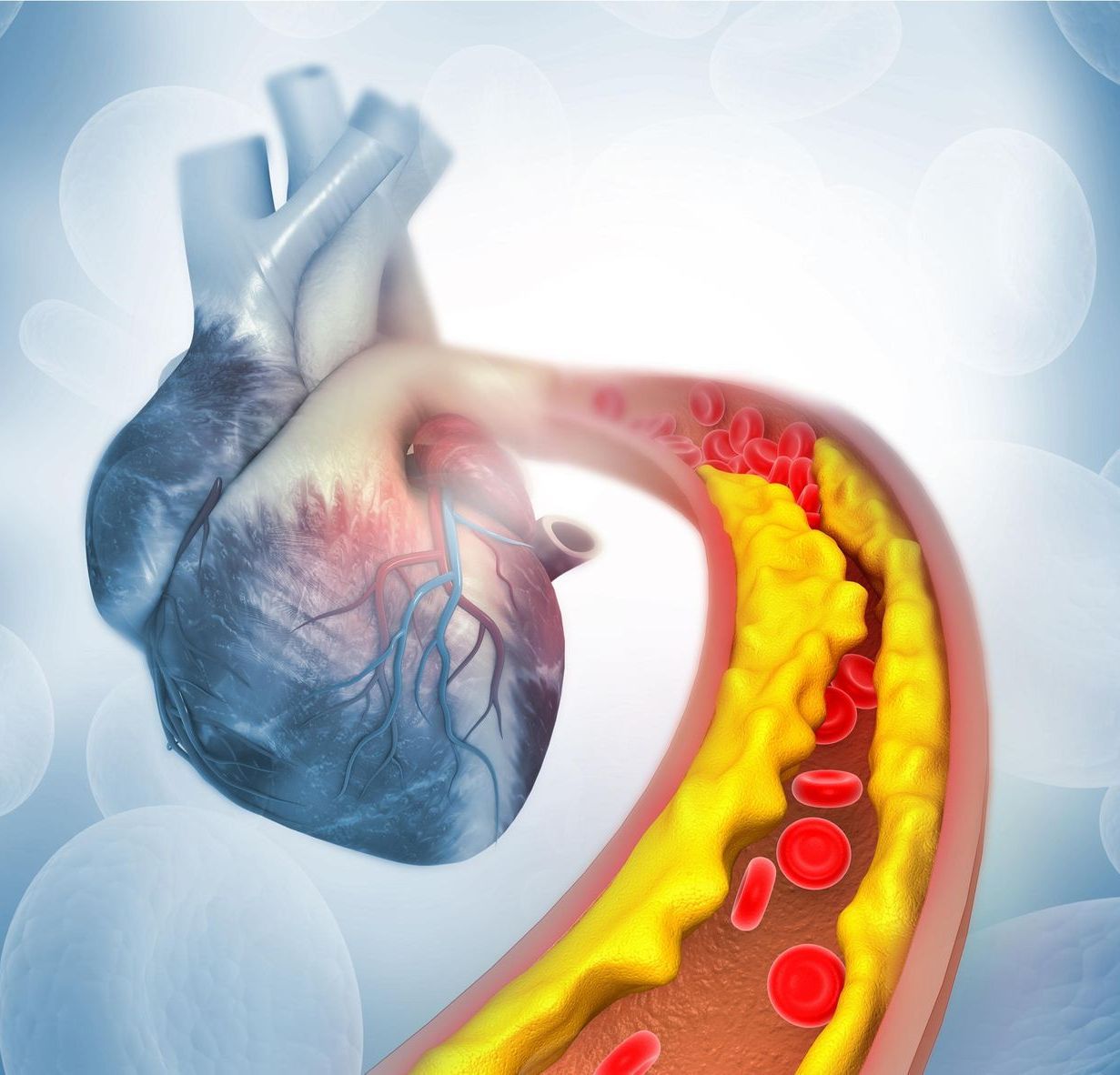
Cholesterol is an essential need for your body
Almost every single cell in your body relies on cholesterol, a fact that often surprises many people. This vital substance plays a crucial role in maintaining cellular integrity and function. In fact, a remarkable one-third of the cell membrane is composed of cholesterol. Without this essential component, none of the cells in your body would be able to work or function properly, including those that make up your most vital organs such as your brain and heart.
But cholesterol's importance doesn't stop at the cellular level. Your body ingeniously uses cholesterol as a fundamental building block for creating various hormones that are essential for life. Perhaps most notably, cholesterol serves as the precursor molecule for vitamin D, which is crucial for bone health, immune function, and overall well-being. Additionally, cholesterol is the starting point for the synthesis of reproductive hormones, playing a vital role in sexual development and function.
The versatility of cholesterol in your body is truly remarkable. From forming the structure of cell membranes to enabling the production of critical hormones, cholesterol is indispensable for numerous bodily processes. Its presence ensures that your cells can communicate effectively, your organs can function optimally, and your body can produce the hormones necessary for various physiological processes.
Understanding cholesterol's multifaceted role helps highlight why maintaining appropriate cholesterol levels is so important for overall health and why it's overly simplistic to view cholesterol as merely "good" or "bad."
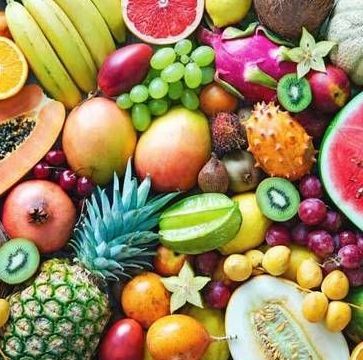
Food Fact/ Tips
Here is a list between fruits that can make you gain weight and those that can help you lose weight. You may be surprised at the results.
Food that makes you gain weight
- Ripe Bananas
- Grapes
- Mangos
- Pineapples
Food that makes you lose weight
- Cherries
- Blue berries
- Black Berries
- Coconuts
- Raspberries
- Golden Berries
- Elderberries

Hormonal balance plays a crucial role in both skin health and overall bodily function
Hormones play a crucial role in maintaining skin health and appearance. Estrogen promotes collagen production and hydration, while testosterone affects oil production. Thyroid hormones regulate skin cell turnover, and cortisol impacts the skin's barrier function. Insulin, growth hormone, and melatonin also contribute to skin health in various ways.
Hormonal imbalances can lead to a range of skin issues, from dryness and acne to premature aging. Estrogen decline during menopause, for instance, often results in thinner, drier skin. Excess cortisol from stress can exacerbate conditions like acne or eczema.
Maintaining hormonal balance through diet, exercise, stress management, and sometimes medical intervention is key to achieving healthy, radiant skin. By understanding the intricate relationship between hormones and skin, we can better address skin concerns and promote overall well-being.

Heavy Metal Exposure in Louisiana
Heavy metal exposure in Louisiana is a complex issue influenced by various Factors. Here's an overview of the situation:
Industrial Sources:
- Louisiana has numerous industrial facilities, including petrochemical plants & refineries
- These can be sources of heavy metals like lead, mercury, & cadmium
- Given Louisiana's industrial presence & potential for heavy metal exposure, residents face increased risk factors for acne & acne development
Historical Contamination:
- Past industrial practices have left some areas with elevated levels of heavy metals in soil & water
- This ends up with us somehow consuming these metals or using the same or similar water to bathe or wash our faces
- This contributes to the clogging of pores & acne development
Water Concerns:
- Some areas have reported elevated levels of lead in drinking water
- The Mississippi River, which runs through Louisiana, can carry heavy metals from upstream sources
Seafood:
- Mercury contamination in fish is a concern, particularly in certain species & water bodies
- Louisiana's high intake of seafood consumption might lead to increased mercury intake, which could lead to hormonal imbalance & skin health issues
Urban Areas:
- Lead exposure from old pain & contaminated soil is a risk, especially in older urban areas
- Because of Louisiana's humid climate, the heavy metal exposure in the air makes it difficult to isolate the cause of acne
Agricultural Runoff:
- Can contribute to heavy metal contamination in waterways
- This is important because runoffs keep the rivers & lakes full and changes the landscape by erosion
- This means heavy metals that are in these runoffs can flow into primary water sources &/or contaminate the soil
Natural Sources:
- Some heavy metals occur naturally in Louisiana's geology
- These natural sources could be as simple as water or dirt
- Not all are bad, however when some metals in these sources interact with the oils on our skin, it results in clogged pores
- Clogged pores lead to acne, redness, blackheads, & irritation
Monitoring & Regulation:
- State & federal agencies monitor heavy metal levels & enforce regulations
- The Louisiana Department of Environmental Quality oversees many of these efforts

Why do we fart?
Well, there are a few reasons...
Flatulence can be attributed to various factors related to digestive health. A poor diet, the presence of heavy metals in the gut (often from certain foods or water sources), and a deficiency in digestive enzymes can all contribute to excessive gas production. Additionally, food allergies, an imbalanced or unhealthy microbiome, gut parasites, and leaky gut syndrome can disrupt normal digestive processes, leading to increased flatulence. These issues can cause the body to struggle with proper food breakdown and absorption, resulting in the formation of gases that need to be expelled.
Addressing these underlying causes is key to managing excessive flatulence. Improving one's diet by incorporating more easily digestible foods, staying hydrated, and avoiding known trigger foods can help. Probiotics and digestive enzymes may also be beneficial in supporting a healthy gut microbiome and efficient digestion. In some cases, medical intervention may be necessary to treat conditions like parasitic infections or leaky gut syndrome. It's important to note that while occasional flatulence is normal, persistent or excessive gas may indicate a need for dietary changes or medical attention to ensure optimal digestive health.

You have to have 1/2 oz of water per body pound
Here is an example. If you weigh 100 pounds you need to drink 50 oz of water
Water is a crucial component of blood, facilitates the transport of nutrients and oxygen throughout the body while aiding in waste removal. This vital fluid supports multiple excretory processes, including perspiration, urination, and defecation.
The kidneys rely on water to effectively filter blood and eliminate waste as urine. Proper hydration is essential for replacing fluids lost through sweating and maintaining healthy bowel movements, thus preventing constipation.
Moreover, adequate water intake enhances kidney function, reducing the risk of kidney stones. Water plays a pivotal role in thermoregulation due to its high heat capacity, which helps maintain stable internal temperatures. Additionally, sweating provides an efficient means of heat dissipation when environmental temperatures exceed body temperature, as noted in Military Medicine
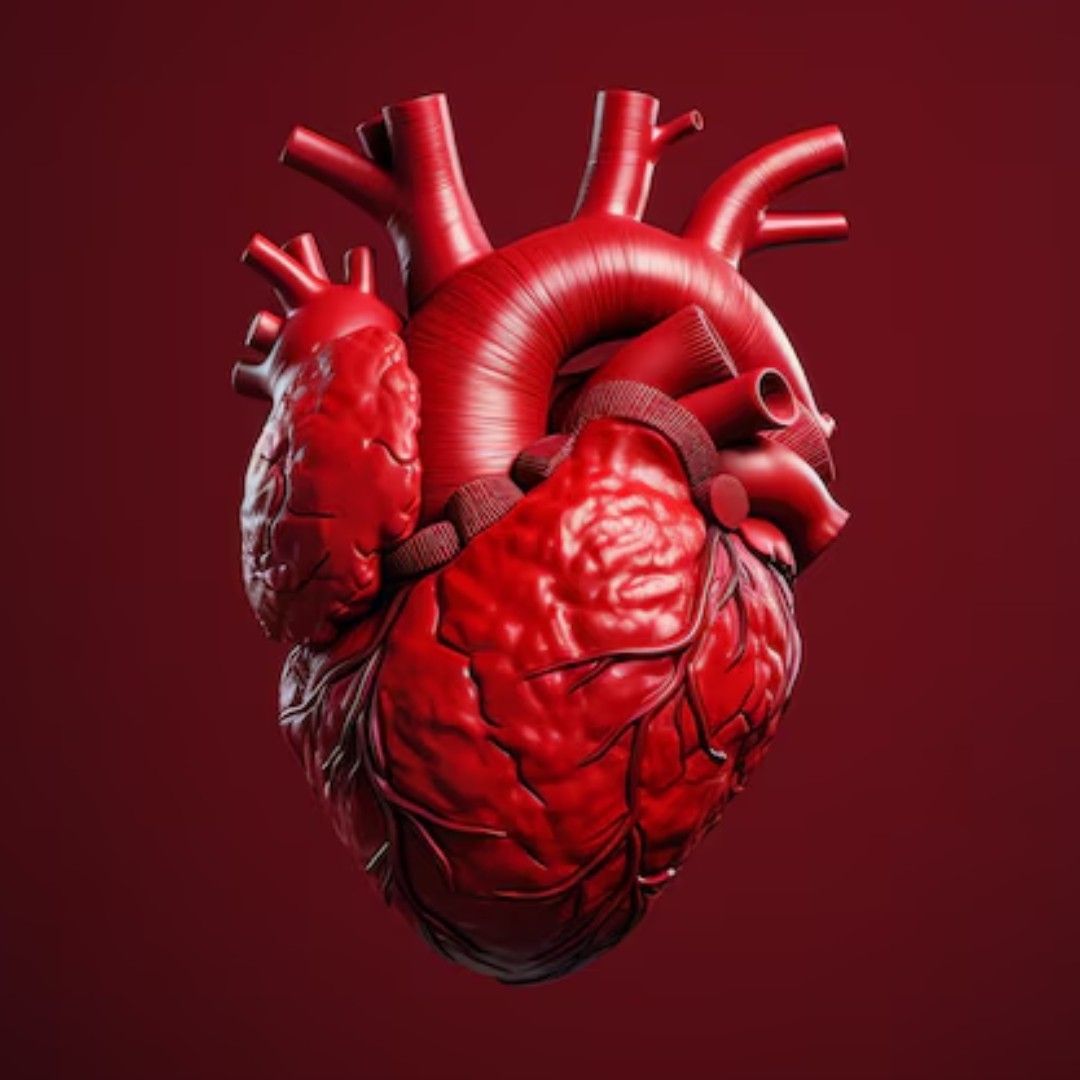
The human heart beats over 3 billion beats in a lifetime
The human heart is an incredible organ that works tirelessly throughout our lives. Over the course of a lifetime, the heart will beat over 3 billion times and pump approximately 1 million barrels of blood.
On a daily basis, the heart beats over 100,000 times, pumping about 5 liters of blood per minute, or around 2,000 gallons per day. The average adult heart weighs between 10-11 ounces for men and 8-9 ounces for women, though a diseased heart can weigh more than 2 pounds more than a healthy heart.
These statistics highlight the immense workload and importance of the heart in sustaining human life.

11 Signs You May Have Parasites
- Digestive Issues: Chronic diarrhea, constipation, gas, bloating
- Fatigue: Persistent tiredness or fatigue despite adequate sleep
- Skin Problems: Rashes, hives, eczema, or unexplained skin irritations
- Muscle & Joint Pains: Unexplained aches, pains, or inflammation in muscles & joints
- Anemia: Symptoms of iron deficiency anemia, such as fatigue & weakness
- Sleep Disturbances: Insomnia, waking up frequently during the night, or teeth grinding
- Unexplained Weight Loss: Sudden, unexplained loss of weight
- Mood Changes: Anxiety, depression, or mood swings
- Digestive Cravings: Intense cravings for sugar & processed foods
- Immune System Issues: Frequent infections, colds, or flue like symptoms
- Weight Issues: Constant weight gain or cant lose weight

Reading is a Brain Workout
Reading is a complex skill that requires rewiring the brain, a process that happens automatically for most children as they learn to connect letters with sounds and words with meaning. However, for children with dyslexia, reading presents significant challenges. Dyslexia is a brain-based disorder that makes it difficult to identify speech sounds and match them to letters, resulting in struggles with reading accuracy, fluency, spelling, and comprehension.
Dyslexia has a genetic component and tends to run in families, though environmental factors can also increase risk. Studies show that with appropriate methods, reading skills can be improved even for children with dyslexia. Early identification is crucial, with experts recommending intervention in first grade or earlier to prevent potential emotional issues like anxiety and low self-esteem.
If a child shows early signs of reading difficulty, such as struggling to rhyme words or sound out simple sentences, it's important to take action promptly. Parents should consult with their child's teacher and doctor about having them evaluated for dyslexia. With proper support and intervention, children with dyslexia can develop effective reading skills and strategies.

Exercises to do when...
Angry ----------------------------> Sing
Burned out --------------------> Walk
Overthinking -----------------> Write
Anxious ---------------------> Breathe
Stressed --------------------> Exercise
Sad -------------------------> Gratitude
Lazy --------------------> Cold shower
Impatient ----> Reflect on progress
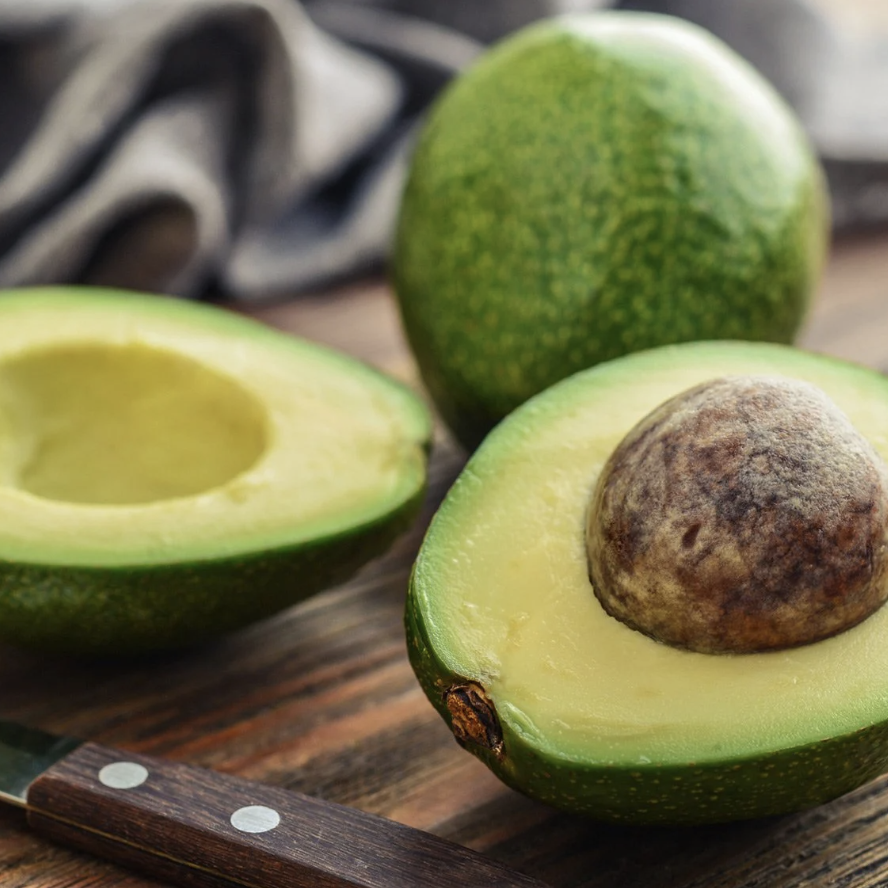
7 Reasons to Love Avocados More
- Avocados Stabilize Blood Sugar & Fight Metabolic Syndrome
Avocados provide numerous health benefits, including blood sugar stabilization, reduced risk of metabolic syndrome, and improved satiety. Despite their calorie density, they support weight management and muscle building. Research shows regular avocado consumers have better overall diet quality, lower BMI, and reduced risk factors for heart disease. These nutrient-rich fruits contribute to a balanced, health-promoting diet.
2. Cancer Prevention
Avocados show promising cancer-fighting properties, according to recent research. Their phytochemicals can induce cancer cell death and inhibit growth, rivaling some chemotherapy effects. The fruit's monounsaturated fats and beta-sitosterol offer anti-inflammatory and immune-boosting benefits, while carotenoids help combat skin cancer and aging. These findings highlight avocados' potential role in cancer prevention and overall health promotion.
3. Weight Loss
Despite their high calorie and fat content, avocados can aid weight loss. Their healthy fats promote satiety, reducing overall calorie intake and hunger between meals. Avocados support low-carb diets, which help control blood sugar and insulin levels. Additionally, they enhance the absorption of fat-burning nutrients, making them a valuable component of a weight management diet.
4. Avocados Contain Amazing Fats
Avocados are rich in oleic acid, the same healthy monounsaturated fat found in olive oil. This nutrient helps lower bad cholesterol, regulate blood sugar, and may aid in cancer prevention, particularly breast cancer. Unlike saturated or processed fats, avocado oil offers protective benefits for both heart and brain health.
5. Healthy Babies - Before & After Birth
Avocados are rich in folate, providing about 25% of the daily requirement in one medium fruit. This B vitamin is crucial for cell production, DNA synthesis, and reducing birth defects in pregnant women. It also supports heart health. Avocados make excellent baby food due to their texture, mild taste, and nutritional profile, including healthy fats and phytochemicals. Their consistency is ideal for babies to handle and eat, even without teeth, making them a nutritious superfood for infants.
6. Eye Health
Avocados are rich in eye-healthy antioxidants like carotenoids, lutein, and zeaxanthin. They also contain vitamin E and oleic acid, which enhances the absorption of carotenoids from avocados and other foods. These nutrients help reduce inflammation, support growth and development, and boost immunity.
7. Healthy Inside, Healthy Outside - Skin & Hair
Avocados' phytochemicals and antioxidants protect skin from environmental damage and reduce inflammation. Diets rich in antioxidants and healthy fats, like those found in avocados, promote healthier, less wrinkled skin. The carotenoids in avocados can enhance skin tone, while their natural oils make them an effective moisturizing face mask.

5 Tips for Starting your Day in a Healthy Way
- Wake-up at the same time every day
Waking up at a consistent time regulates your body clock & improves your sleep quality
2. Drink a glass of water
Hydrating first thing in the morning helps rehydrate your body after sleep & can boost your energy levels
3. Eat a nutritious breakfast
A balanced breakfast provides energy & nutrients to get your day going
4. Exercise in the morning
Getting in some physical activity first thing raises your heart rate, releasing endorphins & boosts your metabolism
5. Practice gratitude
Take a couple of minutes to write down things you're grateful for to start the day on a positive note
More fun facts will be coming so stay tuned in on our fun facts page!
JOIN OUR NEWSLETTER!
JOIN OUR NEWSLETTER
Nutritious Recipes

Salmon Tacos
Ingredients
- 1 lb Salmon
- Kosher salt
- Freshly ground pepper
- 1 Tbsp Cajun spice
- 2 Tbsp extra- virgin olive oil (less than 6 months old)
For Salsa
- 1 cup diced mangos
- 2 ripe avocados - diced
- 1/4 cup red onion - diced
- 2 small tomatoes - diced
- Juice from 1 lime, plus wedges for serving
- Freshly chopped cilantro, for garnish
- 6 tortillas, (made from almond flour) warmed or grilled
Directions
- Pat salmon dry if needed, then evenly season all sides with salt, pepper, and Cajun spice
- Heat oil in a large skillet over medium heat. When oil is hot (not smoking) add salmon. Cook until deeply golden, about 5-6 minutes, then flip and cook for another 2-3 minutes
- Let Salmon cool slightly, then flake into large pieces
- Make pineapple avocado salsa: In a medium bowl, ass pineapple, avocados, onion, tomatoes, and line juice. Season with salt and toss to combine
- Assemble tacos. Top tortillas with salmon, avocado salsa, and cilantro. Serve with lie wedge for squeezing
Why Salmon is good for you
Salmon offers numerous health benefits, including supporting heart and brain health through its omega-3 and -6 fatty acids, potassium, and selenium content. These nutrients help reduce inflammation in arteries, lower cholesterol, maintain blood pressure, and protect the brain from inflammation, potentially lowering the risk of heart conditions, Alzheimer's disease, and other forms of dementia. As a complete protein, salmon provides all essential amino acids needed for muscle growth and repair. Its omega-3 fatty acids also have anti-inflammatory properties, promoting overall cell health, while selenium acts as an antioxidant to boost cell and tissue repair. Regular consumption of salmon may contribute to improved overall health and reduced risk of various chronic conditions.
Why is Almond Flour better for you?
Compared to traditional white flour, almond flour emerges as a nutritional frontrunner, offering a richer profile of healthy fats, fiber, and protein, while containing fewer carbohydrates. This gluten-free alternative is rich in vitamin E, a potent antioxidant that supports brain function, eye health, skin vitality, and reproductive wellness. Additionally, almond flour provides a generous dose of magnesium, a crucial mineral that promotes cardiovascular health and may help ward off migraines. By incorporating this nutrient-dense flour into your diet, you're boosting your overall health.

Sweet Garlic Chicken
Ingredients
- 1lb boneless chicken
- Salt and pepper
- Paprika and cayenne
- Garlic powder
- 1/4 cup of almond flour
- 3 1/2 Tbsp butter
- 2 garlic cloves - mined (1 Tbsp)
- 1 1/2 Tbsp apple cider vinegar
- 1 Tbsp soy sauce
- 1/3 cup maple syrup
Directions
- Cut breasts in half to create 4 steaks in total. Season each side with salt and pepper, sprinkle with paprika, cayenne, and garlic powder
- Coat chicken in flour and shake off excess
- Melt most of the butter in a large skillet over high heat - hold back about 1 Tbsp for later
- Place chicken in skillet and cook for 2-3 minutes until golden brown. Flip and cook the other side for 1 minute
- Turn heat down to medium heat
- Make some room in the pan and add garlic and the remaining Tbsp of butter. Stir garlic once butter is melted
- Add vinegar, soy sauce, and honey. Stir and shake pan to combine with chicken. Bring sauce to a simmer, simmer for 1 minute or until slightly thickened
- Flip chicken to coat in sauce. If the sauce gets to thick, add a small amount of water and stir
- Remove from stove immediately. Place chicken on plates and drizzle with remaining sauce
Why chicken is good for you
Chicken is a nutritional powerhouse, providing protein and creatine; a compound naturally synthesized in the human body from three amino acids: arginine, glycine, and methionine. Scientific studies have demonstrated that incorporating chicken into your diet can yield numerous benefits, including enhanced physical performance, faster recovery times, increased strength, and improved stamina. Moreover, chicken can play a crucial role in weight management strategies and contribute to reducing the risk of heart disease. With its versatility in the kitchen and its impressive nutritional profile, chicken stands out as a smart choice for those looking to maintain a healthy, balanced diet.
Why Garlic is good for you
Garlic packs a powerful punch when it comes to health benefits. Rich in nutrients and unique compounds, garlic and its extracts have been linked to a wide array of positive health outcomes. From bolstering bone strength to combating infections and inflammation, garlic's potential reaches far and wide. Its benefits extend to promoting skin health and even showing promise in cancer prevention. This flavorful bulb proves that sometimes, big things come in small packages when it comes to supporting overall wellness.

Cheeseburger cabbage wraps (or Lettuce)
Ingredients
For Cabbage Wraps
- 4 large green cabbage leaves (or lettuce)
- 1lb ground beef
- Kosher salt
- Freshly ground pepper
- 4 slices Cheddar or Swiss cheese
- 1/2 red onion, thinly sliced into rounds
- 1 medium tomato, sliced
- pickle slices
For sauce
- 2 Tbsp mayonnaise
- 2 Tbsp Dijon mustard (or regular)
- 1 Tsp red wine vinegar
- 1/2 Tsp garlic powder
- Kosher salt
- Ground pepper
Directions
- In a large pot of boiling water, use tongs to dip cabbage leaves in water for 30 seconds to blanch. Place on a paper towel lined plate
- Make sauce: In a medium bowl combine, mayonnaise, mustard, vinegar, and garlic powder. Season with salt and pepper, whisk until smooth
- Make burgers: Season beef with salt and pepper, and other seasons desired. Form ground beef into 4 patties Heat a large skillet over medium heat. Add patties and cook until burgers are seared on the bottom, 4-6 minutes. Flip burgers and cook to your liking (4-6 minutes for medium) adding cheese during the last minute or so of cooking
- Assemble burgers: Place burger patty on the edge of a cabbage leaf where the thickest part of the stem is. Top with onion, tomato, and pickles. Fold opposite end of cabbage leaf up over burger, then fold one side of cabbage leaf over burger and roll until burger is completely wrapped. Serve with sauce
Why beef is good for you
Beef is a powerhouse of high-quality protein, essential for muscle repair and growth. It's particularly beneficial for strength training and maintaining muscle mass as we age. Rich in vitamins and minerals, especially iron, beef can boost exercise performance and prevent anemia. However, moderation is key, as high consumption of processed or overcooked beef has been linked to increased health risks. Balanced intake allows you to enjoy beef's benefits while minimizing potential downsides.
Why cabbage is good for you
Cabbage is a nutrient-dense vegetable packed with health benefits. One cup (89g) of raw green cabbage provides:
- 22 calories
- 56% DV of Vitamin K
- 36% DV of Vitamin C
- 2g of fiber
It's also rich in B vitamins, antioxidants, and minerals. These nutrients support digestion, heart health, keeps inflammation in check, and protects against cellular damage from free radicals. Cabbage's high vitamin C content may help prevent heart disease, certain cancers, and vision loss. With its impressive nutritional profile, cabbage is a valuable addition to any diet.

Zucchini Lasagna Roll- Ups
Ingredients
- 6 Large zucchini
- 16oz Ricotta cheese
- 3/4 cup freshly grated Parmesan- divided
- 2 Large eggs
- 1/2 tsp garlic powder
- Kosher salt
- Freshly ground pepper
- 1 cup marinara
- 1 cup grated mozzarella
Directions
- Preheat oven to 400 degrees. Slice zucchini lengthwise into 1/8 in strips, then place strips on a paper towel-lined baking sheet to drain. Sprinkle lightly with salt. Let sit for 10 minutes, then pat dry with paper towels.
- Meanwhile, make ricotta mixture: In a small bowl, combine ricotta, 1/2 cup parmesan, eggs, and garlic powder and season with salt and pepper
- Spread thin layer of marinara onto the bottom of a 9x13 baking dish. On each slice of zucchini, spread ricotta mixture on top, spoon a thin layer of sauce over ricotta, and sprinkle with mozzarella. Roll up and place in baking dish, packed together tightly.
- Sprinkle with remaining 1/4 cup Parmesan. Bake until zucchini is tender and cheese is melty- 20 minutes
- Split between plates and enjoy
Why Zucchini is good for you
Certain substances, notably lutein and zeaxanthin, shield ocular cells by blocking harmful blue light. Consuming foods high in these compounds may lower one's chances of developing cataracts and other vision-related issues. Zucchini is a notable source of various antioxidants, including lutein and zeaxanthin. Like other vegetables, zucchini aids in the elimination of toxins from the body by facilitating their passage through the large and small intestines. Additionally, zucchini's stable pH environment promotes significant growth of beneficial gut microbiota.

Summer Roll Bowls
Ingredients
Nuoc Cham
- 3 Tbsp maple syrup
- 1/2 bird's eye Chile- thinly sliced
- 1/4 cup fresh line juice
- 2 Tbsp fish sauce
Vietnamese Peanut Sauce
- 6 Tbsp hoisin sauce
- 3tbsp all natural creamy peanut butter
- 2 Tbsp unseasoned rice vinegar
- 2 Tsp chili garlic paste
Bowls
- 1 Tbsp maple syrup
- 1 Tbsp unseasoned rice vinegar
- 1 Tbsp + 1/2 tsp kosher salt- divided
- 8 oz straight cut rice noodles
- 2 cup thinly sliced romaine lettuce
- 1 large carrot- thinly sliced into long batons
- 1 Persian cucumber, thinly sliced into long batons
- 1/2 avocado- thinly sliced
- 1/2 cup packed mixed fresh mint, cilantro, and Thai basil leaves
- 1/4 cup unsalted roasted peanuts
Directions
Nuoc Cham
- In a medium bowl, whisk syrup and 1/2 cup hot water until mixed well. Whisk in Chile, lime juice, and fish sauce
- Make ahead: Nuoc cham can be made 3 days ahead. Store in an airtight container and refrigerate
Vietnamese Peanut Sauce
- In another medium bowl, whisk hoisin sauce, peanut butter, vinegar, and chili garlic paste until combined
- Make ahead: Peanut sauce can be made 3 days ahead. Store in an airtight container and refrigerate
Bowls
- In a medium pot over medium heat, cook syrup, vinegar, 1/2 tsp salt, and 2 tbsp water, whisking frequently, until mixed well- about 2 minutes
- Add shrimp and bring to a simmer. Cook, stirring constantly, until shrimp turns pink and curls up, 2-3 minutes. Transfer shrimp mixture to a small bowl
- Wipe out pot and fill halfway with water; season with remaining 1 tbsp salt. Bring to a boil and cook noodles, stirring occasionally, until tender, checking 2 minutes earlier than package directions. Drain, then rinse noodles under cold water.
- Transfer noodles to a medium bowl. Add 6 tbsp nuoc cham and toss to combine
- In a large bowl, toss lettuce, carrot, and cucumber with 1/2 cup nuoc cham
- Divide noodles among bowls. Nestle salad mixture alongside
- Make ahead: Shrimp and noodles can be cooked 2 days ahead. Store separately in airtight containers and refrigerate.
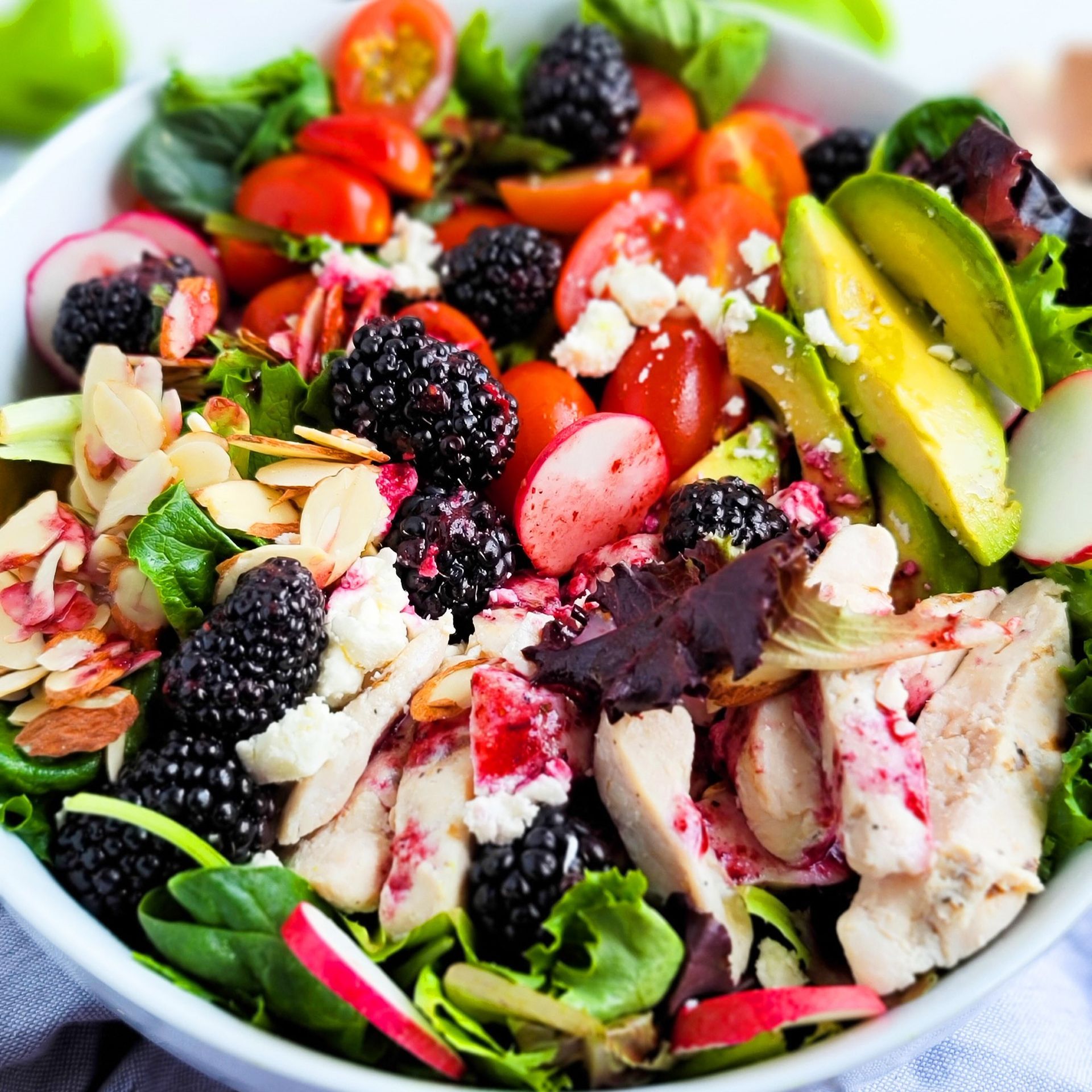
Blackberry Chicken Salad
Ingredients
Chicken
- Juice of one lime
- 1 Tbsp extra virgin olive oil
- 1/2 tsp dried oregano
- 1/4 tsp chili powder
- Kosher salt
- Freshly ground black pepper
- 2 boneless chicken breasts
Dressing
- 1/4 cup extra virgin olive oil
- 2 Tbsp balsamic vinegar
- 1 Tbsp blackberry jam
- 1 tsp honey
- Kosher salt
Salad
- 1 Tbsp extra virgin olive oil
- 5 cup packed baby spinach
- 1 Persian cucumber, thinly sliced
- 1/4 red onion, thinly sliced
- 1 avocado, sliced
- 6 oz blackberries
- 1/4 cup crumbled feta
- 1/4 cup walnuts
Directions
Chicken
- In a small bowl, combine lime juice, oil, oregano, and chili powder; season with salt and pepper
- Place chicken in a resealable bag and pour in marinade. let chicken marinate at room temperature at least 30 minutes or refrigerate up to 2 hours
Dressing
- In a medium bowl, whisk oil, vinegar, jam, and honey; season with salt. Refrigerate until ready to use
- Make ahead: Dressing can be made 1 week ahead. Cover and keep refrigerated
Salad
- In a medium skillet over medium heat, heat oil. Remove chicken from marinade; discard marinade. Cook chicken, turning occasionally, until golden brown and an instant-read thermometer inserted into the thickest part registers 165 degrees, 8-10 minutes pr side. Transfer to a cutting board. Let rest 5 minutes before slicing
- Divide spinach between bowls. Top with chicken, cucumber, onion, avocado, blackberries, feta, and walnuts. Add dressing and toss to combine.
Why Blackberries are good for you
Blackberries are a small fruit with big benefits. Packed with anthocyanins, these berries fight inflammation and may boost brain health, potentially preventing age-related memory loss. Research suggests their antioxidants improve neural communication. Rich in fiber, blackberries also promote digestive health, easing constipation and feeding beneficial gut bacteria. Its also been researched that blackberries are one of many berry fruits to help one lose weight. Enjoy these tasty berries for a simple, delicious way to support your overall health.

Eggplant Casserole
Ingredients
- 1 large casserole dish, 4" high walls (or close to)
- 2 Tbsp olive oil
- 2 large or medium eggplants
- 2 cans tomato sauce
- 2.5 lb. ground meat
- 2 Tbsp ground paprika
- 3 Tbsp Greek seasoning
- 1 Tbsp ground pepper
- 1 large garlic clove
- 1/4 onion (finely diced)
- 2 cups shredded mozzarella
- 1/4 cup shredded parmesan
Directions
- Preheat oven to 390 degrees
- Peel and slice eggplant into 1/4"x1/4" length of eggplant
- Place eggplant, olive oil, 1/2 of the paprika, and 1/2 of black pepper in the casserole dish. Mix until everything is coated
- Cook eggplant uncovered in oven for 15 minutes, mix well, then cook eggplant an additional 10-15 minutes until eggplant is tender or "clear"
- In a pot, brown the meat until cooked, drain water or oil; keep meat in pot
- In the same pot as meat add the rest of the seasonings, tomato sauce, onion, and garlic. Mix and bring to a boil, then let simmer 10-12 minutes
- Pour meat sauce over your eggplant, using a spoon to push the sauce down into the eggplant. The layer of meat sauce should completely cover the eggplant.
- Top with mozzarella then parmesan
- Cook for 25 minutes (until cheese is melted and slightly brown)
- Let cool 6 minutes before serving
Why Eggplants are good for you
Eggplants are rich in antioxidants, including polyphenols (such as phenolic acids and flavonoids) and anthocyanins. These compounds help protect cells from damage and may offer health benefits. Anthocyanins, responsible for eggplants' purple color, have been associated with anti-inflammatory effects and potential weight management properties. Additionally, these antioxidants may support brain health.

Spaghetti Squash Spaghetti
Ingredients
- Cooking sheet
- Vegetable oil
- 1 large spaghetti squash (2 for larger dinner)
- 2 cans marinara
- Parmesan
- 1 lb ground beef
- Baby bell mushrooms (as many as you'd like)
Directions
- Preheat oven to 425 degrees
- Cut squash in half (long way) or keep whole
- If cut in half, take out seeds and cover with foil. If kept whole, puncture with fork 10-12 times
- Place squash on cooking sheet and put in oven for 45 minutes to 1 hour
- Place a medium or large pot on stove on medium heat. Add marinara and bring to a slight boil.
- Place a large or medium pan on stove heating with oil.
- Add beef cooking thoroughly, season as desired.
- Once finished add beef and mushrooms to marinara, keeping it at a boil for 5-10 minutes
- Once done keep at a slight simmer to keep warm
- Once spaghetti squash is done, remove from oven. Scrape spaghetti squash into separate plates, adding spaghetti sauce on top, with as much parmesan as desired
Why Spaghetti Squash is good for you
Spaghetti Squash is a Healthy Pasta Alternative. Spaghetti squash offers a nutritious, low-calorie substitute for pasta. Key benefits include:
1. Low in carbs and calories, high in fiber
2. Rich in vitamins and minerals, including beta carotene, vitamin C, and pantothenic acid
3. Supports weight management due to its filling nature and low calorie content
4. Promotes bone health with nine essential minerals, including manganese, copper, and zinc
While not a nutritional powerhouse, spaghetti squash provides a tasty way to reduce calorie intake and increase vegetable consumption in your diet.
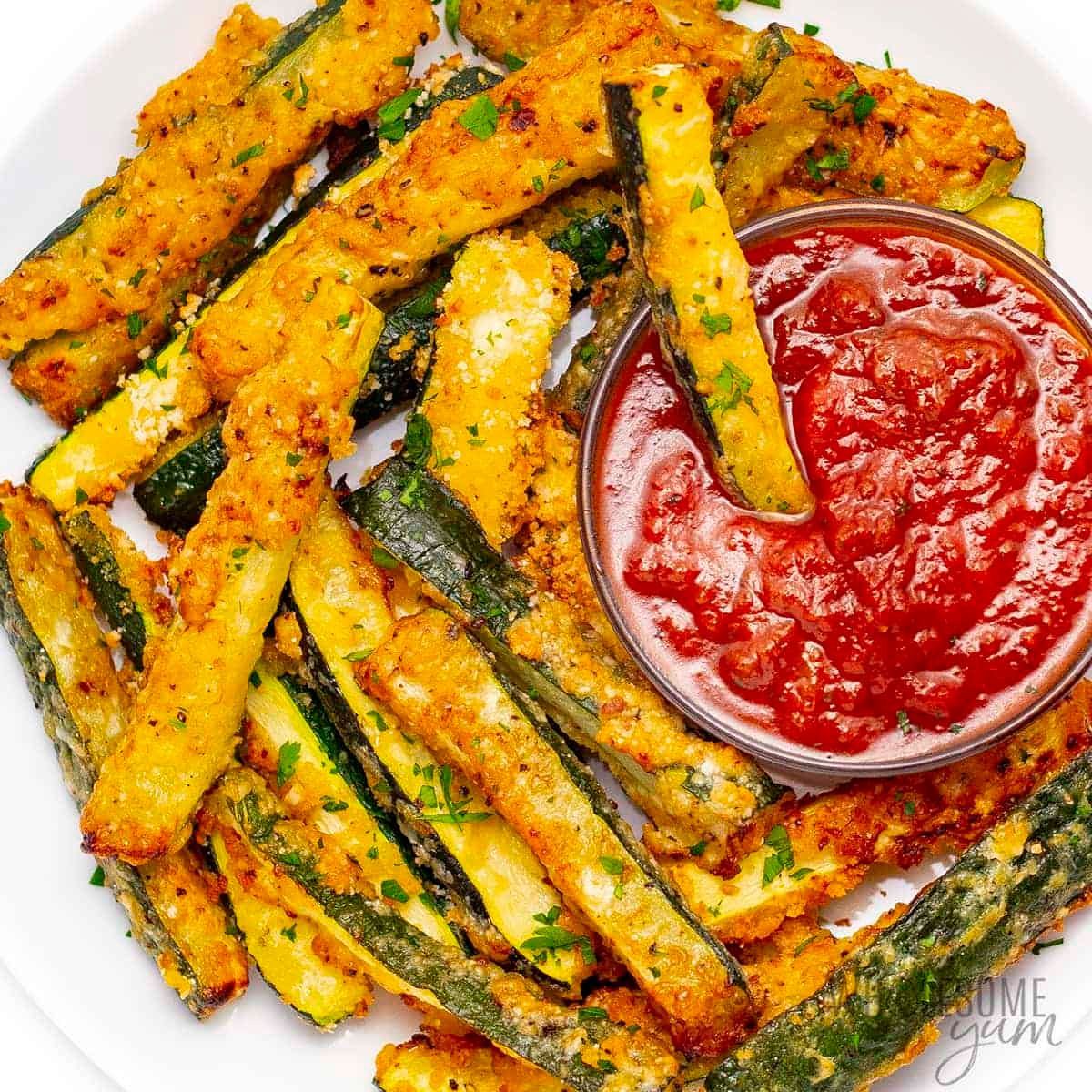
Zucchini Fries (Easy & Healthy!)
Ingredients
- 2 Medium zucchini
- 1 Large egg
- 3/4 cup grated parmesan cheese
- 1/4 Tsp garlic powder
- 1/4 Tsp Black pepper (optional)
Directions
- Preheat the oven to 425 degrees. Line and lightly oil the baking sheet
- Cut each zucchini in half lengths 4 times. Then cut the sticks once crosswise, making 16 sticks from each squash. If Zucchini sticks feel wet, pat with paper towels.
- Prepare 2 shallow bowls- one with beaten egg and one with a mixture of grated parmesan, garlic powder, and black pepper. Dip each stick in the egg, shake off excess, then press into the parmesan mixture, coating all sides
- Place sticks on the prepared baking sheet in a single layer without touching
- Bake for abut 20 minutes, flipping the fries and rotating the pan halfway through, until fairly dark golden
- Place under broiler for 2-3 minutes, until darker golden and crispy
If you want to know why zucchini is good for you scroll up once to our Zucchini Lasagna Roll-Ups Recipe!

Keto Key Lime Pie with Cream Cheese
Ingredients
Crust
- 4 ounces cream cheese
- 1 1/2 cups almond flour
- 3 Tbsp low carb sugar substitute
Filling
- 1 cup heavy whipping cream
- 8 ounces cream cheese (softened)
- 1/2 cup Swerve Confectioners Powdered Sweetener
- 1/3 cup key lime juice
- lime zest (optional)
Directions
- Preheat oven to 350 degrees
- Pulse all the crust ingredients together in a food processor until cream cheese has been evenly incorporated into almond flour
- Using the back of the tablespoon, press crust mixture into 9in pie pan. If dough is to sticky, try using plastic wrap or a small pastry roller
- Bake crust at 350 for about 10-12 minutes. Allow to cool on rack
- In a medium bowl, beat heavy cream with electric mixer until stiff peaks form
- In a separate bowl, beat cream cheese and sweetener until light and fluffy. Blend lime juice and zest (if using).
- Fold in the whipped cream until well incorporated
- Spread cream cheese mixture into crust. Refrigerate at least five hours or overnight. Keep refrigerated.
Notes:
- For a stronger lime flavor, add the zest from 2 regular limes or 4 key limes
- The pie can be topped with whipped cream and lime zest for garnishing

Deer Burger Salad
Ingredients
- Romaine Lettuce (as much as desired)
- deer meat(cut into bite sized pieces)
- 2-4 large mushrooms
- 1 large red bell pepper
- 1 large yellow bell pepper
- Half of 1 large onion
- 2 cloves minced garlic
- pink salt
- Swiss cheese (as much as desired)
- olive oil
- Paul Newman's Italian dressing
Directions
- Clean and rinse vegetables
- Chop romaine lettuce into desired sized pieces. Half bell peppers removing the core and seeds; continue to cut bell pepper longways. Cut mushrooms to desired size. Slice half of the onion into lengths. Cut deer meat into bite sized pieces.
- In a skillet over medium heat add a bit of olive oil; sauté bell peppers, onions, garlic, and mushrooms for 8-10 minutes. Remove skillet from heat when done and put cooked ingredients aside.
- In the same pan add a little more olive oil. Place deer meat in skillet to cook until browned. Add seasonings. Place lid on the skillet still on medium heat. Cook until done
- Add Romain lettuce to a plate, deer meat on top, then veggies, and finally Swiss cheese with dressing as the final topping.
- Serve and enjoy
Why Deer meat is good for you
Venison, specifically deer meat, is a nutrient-dense protein source rich in essential amino acids. These amino acids play a crucial role in the body's ability to repair and build tissues. As proteins are fundamental components of muscles, bones, cartilage, and skin, consuming adequate amounts of venison can contribute to increased muscle mass and overall tissue health. The high protein content in deer meat makes it an excellent choice for those looking to support their body's structural needs and promote muscle development.

Turkey Soup
Ingredients
- Turkey (already cooked and pulled apart)
- Organic chicken broth
- 1 cup Cauliflower
- 1 cup Broccoli
- 1/2 cup sweet peas
- 1 large red bell pepper
- 1 large yellow bell pepper
- pink salt
- Cayenne pepper
- Parsley
- garlic cloves (as many as desired)
- onion
- minced garlic
Directions
- Pull apart turkey if whole and set to the side. Mince garlic leaving a few of the full cloves to the side. half the bell peppers, taking out the cores and seeds.
- In a large pot, pour 2 boxes of chicken broth mixed with water.(use own judgement for water)
- Add onions, garlic cloves, parsley, cayenne peppers, salt, minced garlic, red bell peppers, and yellow bell peppers.
- Cook in broth for 30 minutes. When done place turkey into the pot. Then add broccoli and cauliflower to pot. Cook until vegetables are tender
- Divide into bowls and enjoy!
Why turkey meat is good for you
Turley has become a staple in holiday cuisine worldwide. Its popularity stems from its nutritional profile, offering a rich array of essential vitamins and minerals. Turkey meat is particularly notable for its high protein content and abundance of B vitamins, including riboflavin and thiamin. It also provides significant amounts of phosphorus, potassium, and vitamin C. Notably, turkey is a lean meat option, containing minimal fat, especially when consumed without the skin.
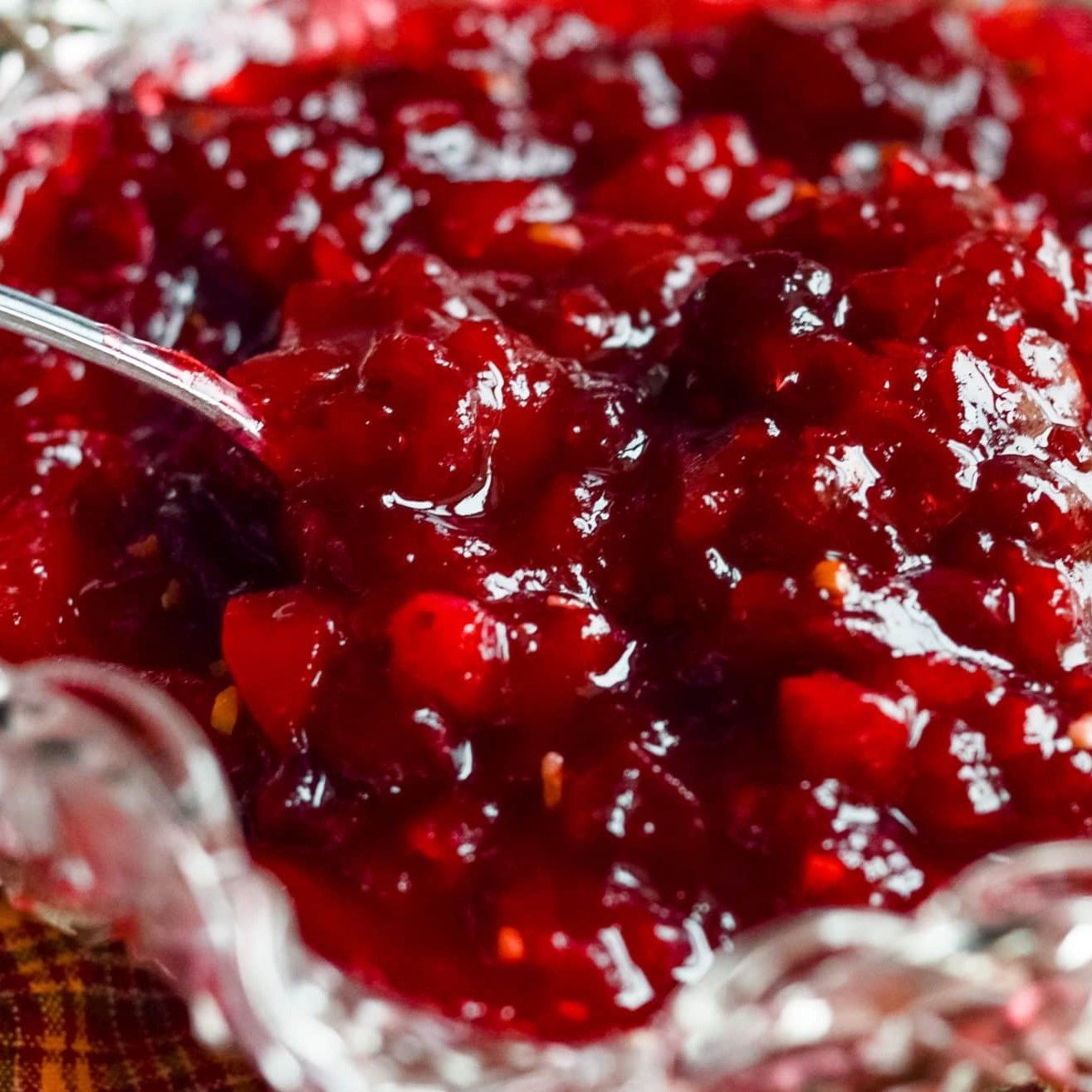
Apple & Spice Cranberry Pie
Ingredients
- 1 shallot (about 1/3 cup chopped)
- 1 Tbsp canola oil
- 1 lb. cranberries (fresh or frozen)
- 2/3 cup granulated sugar
- 1/2 cup light brown sugar
- 1/2 cup apple cider
- 1/2 Tsp ground cinnamon
- 1 Tsp ground allspice
- 1 golden apple
Directions
- Finely chop the shallot
- Heat oil in a medium sauce pan over medium high heat. Add the shallot and cook until slightly softened- 2-3 minutes. Stir in the cranberries, sugar and brown sugar, cider, cinnamon, and allspice.
- Bring mixture to a boil, the reduce heat to medium and simmer, stirring occasionally, until cranberries have popped and the sauce thickens slightly- about 8 minutes
- Meanwhile, peel, core, and cut the apple into 1/4 in dice.
- Stir the diced apple into the sauce and cook until slightly softened- about 2 minutes. Remove from heat and let cool to room temperature
- Chill sauce for at least 3 hours before serving to thicken

Chicken Salad
Ingredients
- Romaine lettuce
- 1 large Cucumber
- Shredded chicken
- 1 large sausage link
- organic mayonnaise
- Dill relish
- organic honey mustard
- Swiss cheese
- Salt & pepper
- Paul Newman's Italian Dressing
Directions
- Cook chicken as desired then shred
- Cook sausage link then cut in half
- Slice cucumber into as many pieces as desired and put to the side
- After chicken is cooked and shredded, mix ingredients into chicken. Dill relish, honey mustard, mayonnaise, salt, and pepper
- After mixed, get a plate adding a bed of lettuce
- Add chicken on top, salt & pepper, Swiss cheese, and Paul Newman's Italian Dressing
If you want to know why chicken is good for you go check out our Sweet Garlic Chicken above this recipe!
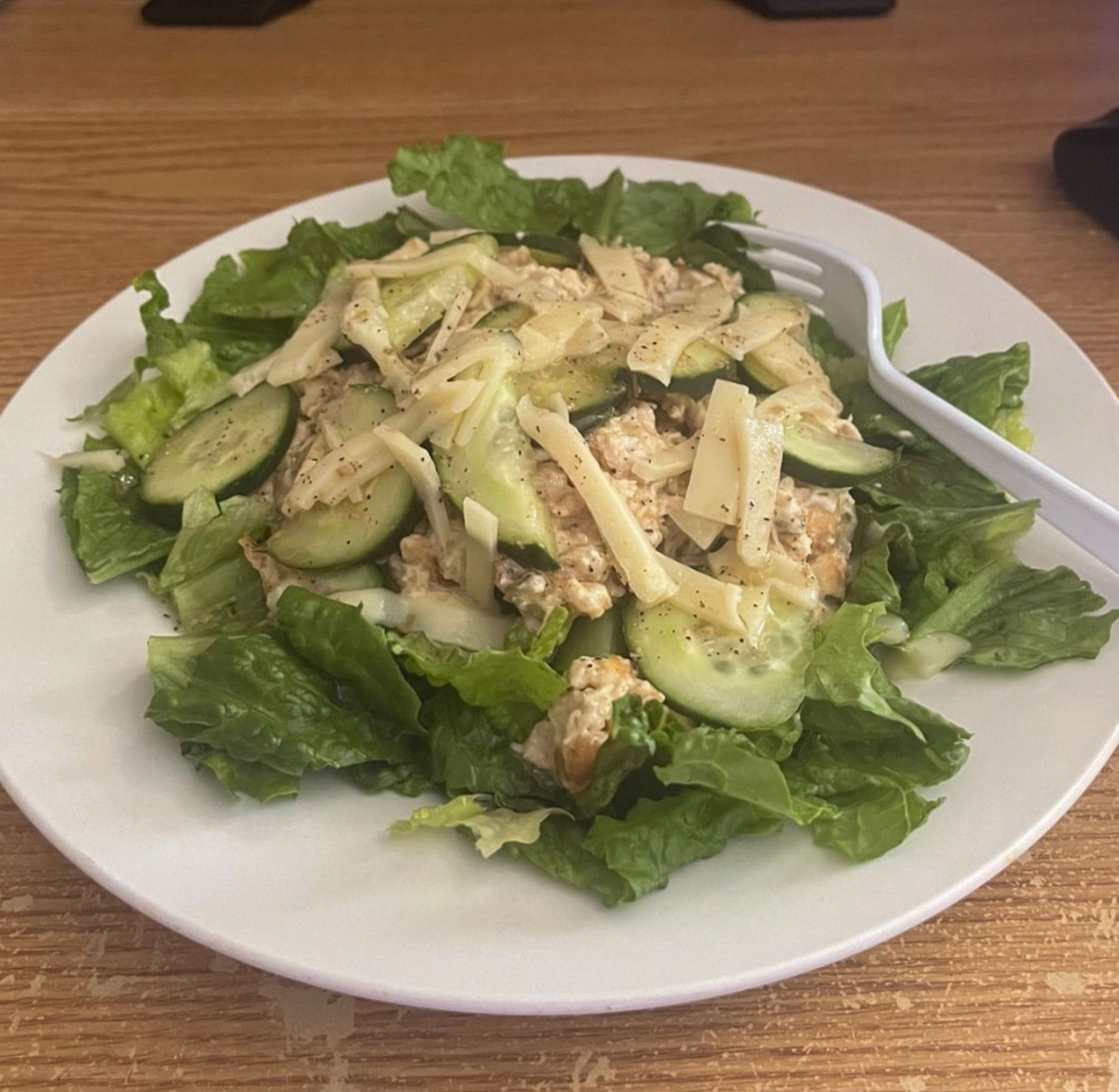
Tuna Salad
Ingredients
- Romain Lettuce
- Alcove solid wild tuna
- Organic mayonnaise
- dill relish
- Organic honey mustard
- Swiss cheese
- Salt & pepper
Directions
- In a bowl, mix all ingredients with tuna. Mayonnaise, dill relish, honey mustard, salt & pepper
- On a plate add a bed of lettuce, then tuna, salt & pepper, Swiss cheese, and Paul Newman's Italian Dressing
Why Tuna is good for you
Tuna is a nutritional powerhouse, packed with immune-boosting antioxidants like manganese, zinc, vitamin C, and selenium. Its high omega-3 fatty acid content supports cognitive function, mood regulation, and eye health. Tuna's anti-inflammatory properties may help reduce muscle soreness and chronic inflammation, potentially lowering the risk of conditions like arthritis and gout. The combination of anti-inflammatory minerals and healthy fats in tuna contributes to overall bodily function and resource allocation.

Volcanic Sweet Potato Brownies
Ingredients
- 3 Pounds sweet potatoes
- Butter, for the pan
- 2 3/4 cups smooth almond butter
- 2/3-3/4 cup molasses or pure maple syrup
- 1 Tbsp plus 1 Tsp vanilla extract
- 1 Cup cocoa powder
- 1/2 cup almond flour
- 1 Tbsp baking soda
- 1 Tsp salt
Directions
- Preheat oven to 400 degrees and place sweet potatoes on a rimmed baking sheet. Bake for50 minutes or until sweet potatoes are soft when pressed. Let them cool
- Lower oven temperature to 350 degrees and butter a 9 by 13 inch pan
- In a large capacity blender or food processor, puree sweet potatoes until smooth. Add almond butter and blend to mix well. Add molasses or maple syrup and vanilla extract and blend to mix
- In medium bowl, stir together cocoa powder, almond flour, baking soda and salt. Add dry ingredients into sweet potato mixture and blend until uniformed
- Pour batter into prepared pan and bake 40-45 minutes. Let cool completely before serving
Cook's Tips
- For a less gooey brownie, refrigerate overnight before serving
- If using a mini-muffin pan, reduce baking time to 15-20 minutes. Makes about 60 mini muffins

Balsamic Butter Mushrooms
Ingredients
- 3 Tbsp balsamic vinegar
- 2 ½ Tbsp unsalted butter, melted
- 2 Tsp Dijon Mustard
- 1 ½ Tsp honey
- 1 Tsp grated garlic
- ¼ Tsp salt
- 1/8 Tsp ground pepper
- 1 Pound cremini mushrooms, quartered
- Chopped parsley for garnish (optional)
Directions
- Preheat oven to 425 degrees. Line a large rimmed baking sheet with foil
- Whisk vinegar, melted butter, mustard, honey, garlic, salt, and pepper together in a large bowl
- Add 1 Pound of mushrooms to bowl and toss until evenly coated. Spread a single layer of mushrooms on the prepared baking sheet
- Roast, stirring once halfway through, until the mushrooms are tender and browned, and the sauce has thickened enough to coat the mushrooms. About 15-20 minutes.
- Transfer to plate(s) and garnish with parsley

Cream Cheese Cucumber Roll-Ups
Ingredients
- 1 large cucumber
- 4 Ounces cream cheese, at room temperature
- 2 Tbsp low fat plain strained yogurt
- 2 Tbsp sliced fresh chives
- 2 Tbsp chopped fresh dill
- ½ Tsp ground pepper
Directions
1. Trim ends off cucumbers; cut an 8-inch length from the cucumber (reserve remaining cucumber for another use). Using a vegetable peeler, slice the cucumber lengthwise to get 12 strips. On a clean cutting board, shingle the cucumber strips vertically into a sheet about 8 inches wide.
2. Stir 4 ounces cream cheese, 2 tablespoons yogurt, 2 tablespoons each chives and dill and ½ teaspoon pepper in a small bowl. Spread the mixture over the whole cucumber sheet, leaving an inch at the top and bottom edges.
3. Using a chef’s knife, carefully lift the bottom edge off the cutting board to start rolling; roll up the cucumber sheet. Slice the cucumber roll into 10 pieces.
4. Serve and Enjoy!
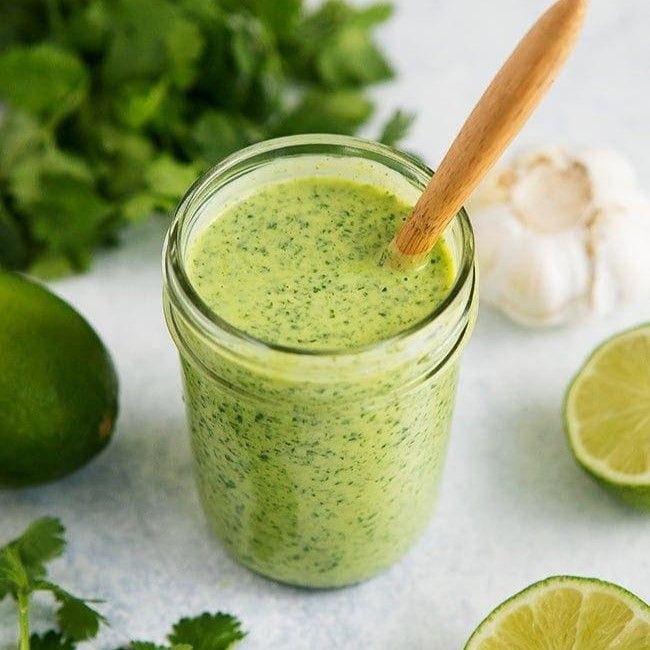
Home-made Cilantro Lime Dressing - Oil Free
Ingredients
- 1/2 organic avocado
- 1/4 cup Greek yogurt
- 1/2 cup distilled water
- 1 cup chopped organic cilantro leaves & stems
- 2 cloves garlic
- 1/2 Tsp Redmond Real Salt
- Juice from 1 lime
- 1/2 oz Plant Derived Minerals
Directions
Mix ingredients well, or blend if desired
Store in refrigerator
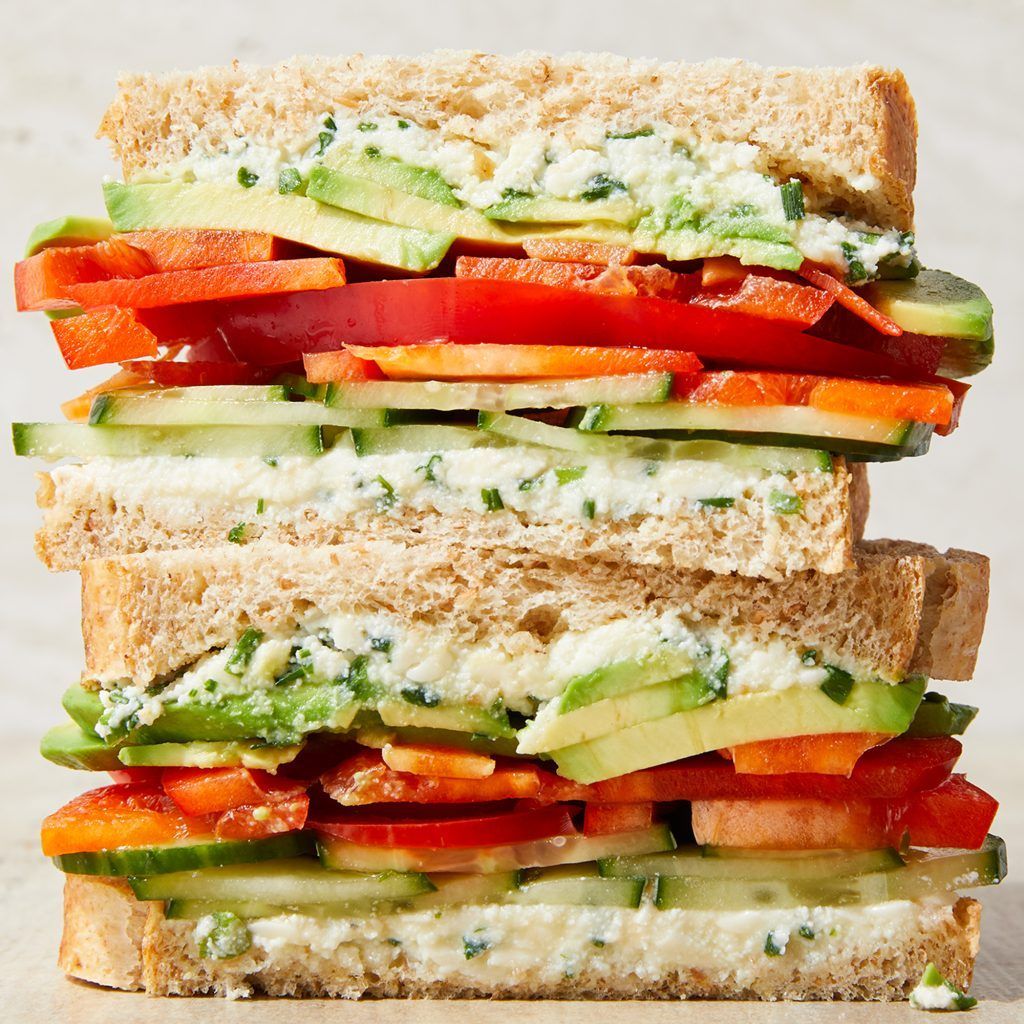
Cucumber & Avocado Sandwich
Ingredients
- 3 Tbsp shredded extra- sharp cheddar cheese
- 2 Tbsp ricotta cheese
- 4 Tsp finely sliced chives
- 2 Tsp lemon juice
- pepper to taste
- 2 slices sandwich bread, lightly toasted
- 1/3 cup thinly sliced cucumber
- 1/4 cup thinly sliced red bell pepper
- 1/3 avocado, sliced
Directions
- Stir cheddar, ricotta, chives, lemon juice, salt & pepper together in a bowl
- Spread half the mixture on each slice of toast
- Layer one slice with cucumber, pepper, & avocado, then top with the other slice of bread

Baked Spaghetti Squash with Tomatoes & Spinach
Ingredients
- 1 (2½- to 2¾-pound) spaghetti squash, halved lengthwise and seeded
- 2 Tbsp extra-virgin olive oil, divided
- ½ cup tomatoes
- 3 Tbsp chopped fresh basil, divided, plus more for garnish
- 1 Tbsp minced garlic
- 3 cups loosely packed chopped baby spinach
- 1 (5.2-ounce) container garlic-and-fine herbs Gournay cheese (such as Boursin)
- ½ Tsp crushed red pepper
- ¼ Tsp ground pepper
- ¼ Tsp salt
- 1 Tbsp balsamic glaze
Directions
- Preheat oven to 400°F. Line a large rimmed baking sheet with parchment paper. Brush cut sides of squash halves with 1 tablespoon olive oil. Arrange the squash halves cut-sides down on the prepared pan. Roast until tender when pierced with a fork, 35 to 40 minutes.
- Flip the squash. Place ¼ cup tomatoes, 1½ tablespoons basil and 1½ teaspoons garlic in each squash cavity. Divide 3 cups spinach between the cavities. Cut 1 (5.2-ounce) container Gournay cheese in half; place one half on top of the spinach mixture in each squash half. Drizzle with the remaining 1 tablespoon extra-virgin olive oil (1½ teaspoons each).
- Roast until the spinach is wilted, about 15 minutes. Let cool for 5 minutes.
- Using a fork, scrape the squash mixture from the shells into a medium bowl. 1 tablespoon oil, ½ teaspoon crushed red pepper and ¼ teaspoon each black pepper and salt.
- Return the mixture to the squash shells; cut each in half crosswise. Transfer to plates; drizzle with 1 tablespoon balsamic glaze. Garnish with basil, if desired.

Spicy Steak and Ranch Salad
Ingredients
- 1/2 cup French-fried onions
- 1 Tbsp Cajun Seasoning
- 1 Tbsp Lime juice
- 1 Garlic clove, minced
- 1 lb Boneless beef sirloin steak, cut 1in thick
- 1 10-ounce package European-style salad greens
- 2 carrots, cut into thin bite-sixed strips or peeled into thin strips
- 1/2 cup thinly sliced radishes
- 1/2 cup bottled fat-free ranch dressing (home-made ranch dressing recipe coming soon)
Directions
- In a large nonstick skillet, cook French-fried onions over medium-high heat for about 2 minutes or until browned, stirring occasionally. Set aside when done
- Meanwhile, combine Cajun seasoning, lime juice, and garlic; rub over both sided of the steak. In the same skillet, cook steak over medium heat to desired doneness. (6-8 minutes for medium rare or 9-12 minutes for medium) Remove skillet from heat and let cool for 10 minutes. When cooled, cut steak into thin bite-sized slices. If desired, season with salt and other desired seasonings.
- On a large serving platter toss together the salad greens, carrots, and radishes. Arrange steak strips over salad. Drizzle dressing over salad. Sprinkle with onions
Makes 4 servings
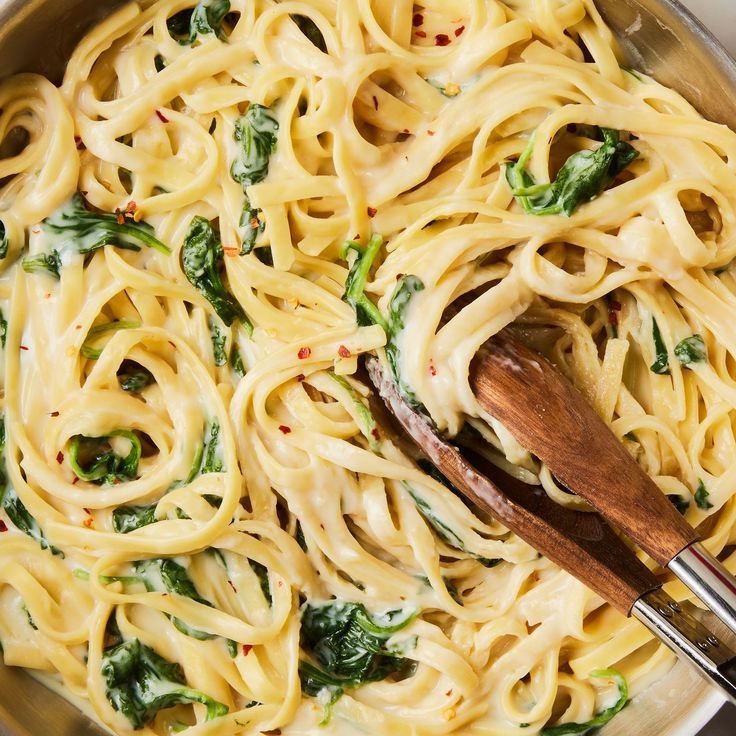
Cottage Cheese Alfredo
Ingredients
- Kosher salt
- 8 oz dry fettuccine
- 1 Tbsp extra-virgin olive oil
- 1 1/4 cup low fat cottage cheese
- 1 cup 2% milk
- 1 oz Parmesan, shredded
- 2 garlic cloved, finely chopped
- 3 Tbsp butter, softened
- 1 Tbsp all-purpose flour
- 3 oz baby spinach
- Crushed red pepper flakes
Directions
- In a large pot of boiling salted water, cook fettuccine, stirring occasionally.
- Meanwhile, in a blender or food processor, pulse cottage cheese, milk, parmesan, garlic, butter, flour, and 1 tsp of salt until smooth. Transfer sauce to a large skillet. Bring to a simmer over medium heat and cook, stirring frequently, until thickened- 8-10 minutes. Add spinach and stir until wilted
- Add pasta to skillet and toss in sauce to coat, using pasta water to loosen sauce if it becomes too thick
- Divide pasta among bowls. Top with red pepper
Makes 4 servings

Spicy Shrimp and Sun-Dried Tomato Dip
Ingredients
- 3/4 Cups Mayonnaise
- 1 package (8oz) cream cheese, softened
- 1/4 cup Sun-dried tomatoes packed in oil, drained
- 2 Tbsp Cayenne pepper sauce
- 1 cup Chopped cooked shrimp
- 2 Tbsp Chopped red onion
Directions
- In a food processor or blender, combine mayo, cream cheese, sun-dried tomato's, and cayenne pepper sauce, until smooth.
- Combine mixture with remaining ingredients in a medium bowl. Chill for 1 hour. Serve with your favorite cut up vegetables pr pita chips for dipping.
More nutritional recipes will be coming so stay tuned in on our fun facts page!
Stay Informed, Stay Inspired
Your wellness journey is uniquely yours, and we're here to support you every step of the way. Whether you're seeking information, inspiration, or community, our Patient Resources page is your gateway to a healthier, happier you.
For more information or to suggest additional resources you'd like to see, contact us.
Embrace your wellness journey with the support and guidance of Bio Wellness Center
— where your health is our priority.
